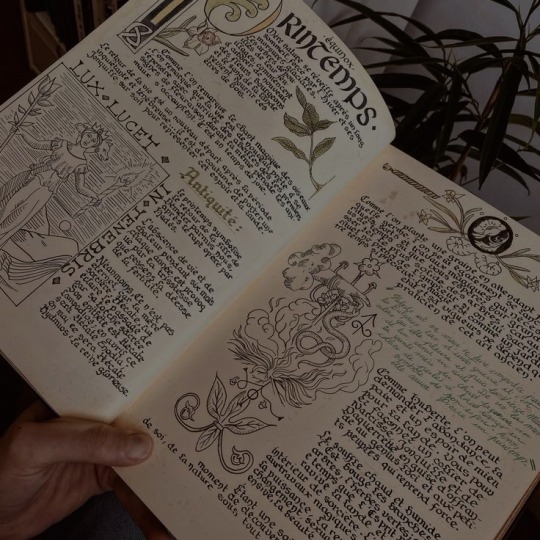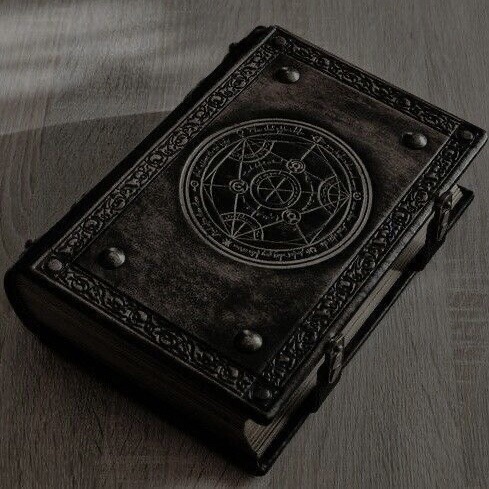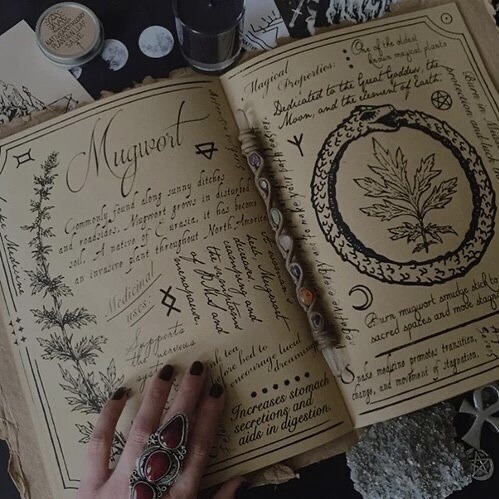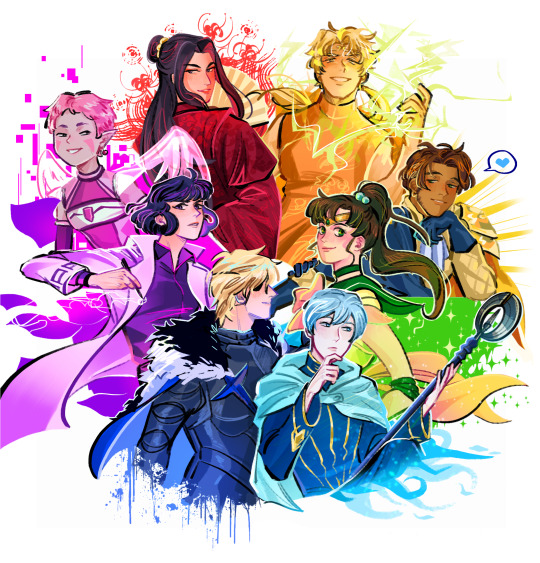#Moon Wheel
Explore tagged Tumblr posts
Text









Witchy summer
#Litha#ivana kupala night#kupala#ivana kupala#summer#witchy#witchy things#witchyvibes#witches#witch#whimsigoth#whimsigothic#witchythings#moon#whimsical#witchcraft#witch aesthetic#witch community#witchcraft community#witches of tumblr#magick#pagan#wheel of the year#summer solstice#summertime#summer witch#tarot#moodboard#green witch#green witchcraft
4K notes
·
View notes
Text
GRIMORE IDEAS



Start a lunar or dream diary.
Write spells.
Astrology meanings.
Write and record rituals
Tarot meanings.
Magickal correspondences.
Your natal chart info.
Herb names, uses, and/or properties.
Info about deities and entities.
Crystals names, uses, and/or properties.
Magickal food recipes.
Faeries.
Meditation techniques.
Full moon names.
Sigils.
Runes.
How to use a pendulum.
Wheel of the Year.
Essential oil uses.
How to scry.
Maiden, Mother, and Crone.
The Elements.
History of witchcraft.
The difference between jinxes, hexes, and curses.
Morning and night rituals.
How to celebrate/info about the Sabbats.
Types of salt and their properties.
Moon phases and their corresponding meanings.
Types of divination.
Planet correspondences.
Candle colour meanings.
How to draw and/or cast a circle, runes, and sigils.
Tools of the craft.
#fyp#fypシ#fypシ゚viral#fypage#fyppage#tumblr fyp#witchcraft#witches#witch#herbal witch#crystal witch#witchcore#witch community#learning witchcraft#grimoire#ideas#sabbats#divination#moon phases#norse runes#sigils#wheel of the year#faeries#crystals#herbs#spellwork#spells#tarot cards#astrology#information
1K notes
·
View notes
Text
I know sun and moon symbolism in fandom can be contrived but as it stands I think it doesn’t get any better for superman and batman. they earned it over the past eighty-some years I’m gonna let them have this
#superman getting his powers from the sun..batman working under cover of night…why reinvent the wheel#every time I see sun/moon symbolism it is always correct and perfect#please continue#superman#batman#superbat#worlds finest#cricket chirps
755 notes
·
View notes
Text
September 2024 Witch Guide
New Moon: September 2nd
First Quarter: September 11th
Full moon: September 17th
Last Quarter: September 24th
Sabbats: Mabon- September 22nd
September Harvest Moon
Also known as: Autumn Moon, Child Moon, Corn Harvest Moon, Falling Leaves Moon, Haligmonath, Leaves Turning Moon, Mating Moon, Moon of Brown Leaves, Moon When Dear Paw the Earth, Rutting Moon, Singing Moon, Wine Moon, Witumanoth & Yellow Leaf Moon
Element: Earth
Zodiac: Virgo & Libra
Nature spirts: Trooping Faeries
Deities: Brigid, Ceres, Chang-e, Demeter, Freya, Isis, Depths & Vesta
Animals: Jackal & snake
Birds: Ibis & sparrow
Trees: Bay, hawthorn, hazel & larch
Herbs: Copal, fennel, rye, skullcap, valerian, wheat & witch hazel
Flowers: Lily & narcissus
Scents: Bergamot, gardenia, mastic & storax
Stones: Bloodstone,carnelian, cat's eye, chrysolite, citrine, iolite, lapis lazuli, olivine, peridot, sapphire, spinel(blue), tourmaline(blue) & zircon
Colors: Browns, dark blue, Earth tones, green & yellow
Issues, intentions & powers: Confidence, the home, manifestation & protection
Energy: Balance of light & dark, cleaning & straightening of all kinds, dietary matters, employment, health, intellectual pursuits, prosperity, psychism, rest, spirituality, success & work environment
The full Moon that happens nearest to the fall equinox (September 22nd or 23rd) always takes on the name “Harvest Moon.” Unlike other full Moons, this full Moon rises at nearly the same time—around sunset—for several evenings in a row, giving farmers several extra evenings of moonlight & allowing them to finish their harvests before the frosts of fall arrive.
• While September’s full Moon is usually known as the Harvest Moon, if October’s full Moon happens to occur closer to the equinox than September’s, it takes on the name “Harvest Moon” instead. In this case, September’s full Moon would be referred to as the Corn Moon.
This time of year—late summer into early fall—corresponds with the time of harvesting corn in much of the northern United States. For this reason, a number of Native American peoples traditionally used some variation of the name “Corn Moon” to refer to the Moon of either August or September.
Mabon
Known as: Autumn Equinox, Cornucopia, Witch's Thanksgiving & Alban Elved
Season: Autumn
Element: Air
Symbols: Acorns, apples, autumn leaves, balance, berries, corn, cornucopia( Horn of Plenty), dried seeds, equality, gourds, grains, grapes, ivy, pine cones, pomegranates, vines, wheat, white roses & wine
Colors: Blue, brown, dark red, deep gold, gold, indigo, leaf green, maroon, orange, red, russet. Violet & yellow
Oils/Incense: Apple, apple blossom, benzoin, black pepper, hay/straw, myrrh, passion flower, patchouli, pine, red poppy & sage
Animals: Dog & Wolf
Birds: Goose, hawk, swallow & swan
Stones: Agate, amethyst, carnelian, lapis lazuli, sapphire, yellow Agate & yellow topaz
Food: Apples, blackberries, blackberry wine, breads, carrots, cider, corn, cornbread, grapes, heather wine, nuts, onions, pomegranates, potatoes, squash, vegetables, wheat & wine
Herbs/Plants: Benzoin, bramble, corn, ferns, grains, hops, ivy, milkweed, myrrh, sage sassafras, Salomon's seal, thistle, tobacco & wheat
Flowers: Aster, heather, honeysuckle, marigold, mums, passion flower, rose
Trees: Aspen, cedar, cypress, hazel, locust, maple, myrtle oak & pine
Goddesses: Danu, Epona, Inanna, Ishtar, Modron, Morgan, The Morrigan, Muses, Pomona, Persephone, Sin, Sophia & Sura
Gods: Bacchus, Dionysus, Dumuzi, Esus, The Green Man, Hermes, Mannanan, Thor & Thoth
Issues, Intentions & Powers: Accomplishment, agriculture, balance, goals, gratitude & grounding
Spellwork: Balance, harmony, protection, prosperity, security & self-confidence
Activities:
•Scatter offerings in a harvested fields & Offer libations to trees
• Decorate your home and/or altar space for fall
• Bake bread
• Perform a ritual to restore balance and harmony to your life
• Cleanse your home of negative energies
• Pick apples
• Collect fall themed things from nature like acorns, changing leaves, pine cones, ect)
• Have a dinner or feast with your family and/or friends
• Set intentions for the upcoming year
• Purge what is no longer serving you & commit to healthy changes
•Take a walk in the woods
• Enjoy a pumpkin spice latte
• Donate to your local food bank
• Gather dried herbs, plants, seeds & pods
• Learn something new
• Make wine
• Fill a cornucopia
• Brew an apple cinnamon simmer pot
• Create an outdoor Mabon altar
•Adorn burial sites with leaves, acorns, & pinecones to honor those who have passed over & visit their graves
The name Mabon comes from the Welsh/Brythonic God Mabon Ap Modron, who's name means "Divine/great Son", However,there is evidence that the name was adopted in the 1970s for the Autumn Equinox & has nothing to do with this celebration or this time of year.
• Though many cultures see the second harvest (after the first harvest Lughnasadh) & Equinox as a time for giving thanks before the name Mabon was given because this time of year is traditionally when farmers know how well their summer crops did & how well fed their animals have become. This determines whether you & your family would have enough food for the winter.That is why people used to give thanks around this time, thanks for their crops, animals & food
Some believe it celebrates the autumn equinox when Nature is preparing for the winter months. Night & day are of equal legth & the God's energy & strength are nearly gone. The Goddess begins to mourn the loss she knows is coming, but knows he will return when he is reborn at Yule.
Related festivals:
• Sukkot- Is a Torah-commanded holiday celebrated for seven days, beginning on the 15th day of the month of Tishrei. It is one of the Three Pilgrimage Festivals on which Israelites were commanded to make a pilgrimage to the Temple in Jerusalem. Originally a harvest festival celebrating the autumn harvest, Sukkot’s modern observance is characterized by festive meals in a sukkah, a temporary wood-covered hut, celebrating the Exodus from Egypt.
• Mid-Autumn festival- September 17th
Is also known as the Moon Festival or Mooncake Festival. It is a traditional festival celebrated in Chinese culture, similar holidays are celebrated by other cultures in East & Southeast Asia. It is one of the most important holidays in Chinese culture; its popularity is on par with that of Chinese New Year. The history of the Mid-Autumn Festival dates back over 3,000 years. On this day, it is believed that the Moon is at its brightest and fullest size, coinciding with harvest time in the middle of Autumn.
During the festival, lanterns of all size and shapes – which symbolize beacons that light people's path to prosperity & good fortune – are carried & displayed. Mooncakes, a rich pastry typically filled with sweet-bean, egg yolk, meat or lotus-seed paste, are traditionally eaten during this festival. The Mid-Autumn Festival is based on the legend of Chang'e, the Moon goddess in Chinese mythology.
• Thanksgiving- This is a secular holiday which is similar to the cell of Mabon; A day to give thanks for the food & blessings of the previous year. The American Thanksgiving is the last Thursday of November while the Canadian Thanksgiving is celebrated in October
• The Oschophoria- Were a set of ancient Greek festival rites held in Athens during the month Pyanepsion (autumn) in honor of Dionysus. The festival may have had both agricultural and initiatory functions.
-Amidst much singing of special songs, two young men dressed in women's clothes would bear branches with grape-clusters attached from Dionysus to the sanctuary of Athena Skiras & a footrace followed in which select ephebes competed.
Ancient sources connect the festival and its rituals to the Athenian hero-king Theseus & specifically to his return from his Cretan adventure. According to that myth, the Cretan princess Ariadne, whom Theseus had abandoned on the island of Naxos while voyaging home, was rescued by an admiring Dionysus; thus the Oschophoria may have honored Ariadne as well. A section of the ancient calendar frieze incorporated into the Byzantine Panagia Gorgoepikoos church in Athens, corresponding to the month Pyanopsion (alternate spelling), has been identified as an illustration of this festival's procession.
Sources:
Farmersalmanac .com
Llewellyn's Complete Book of Correspondences by Sandra Kines
Wikipedia
A Witch's Book of Correspondences by Viktorija Briggs
Encyclopedia britannica
Llewellyn 2024 magical almanac Practical magic for everyday living
#wheel of the year#harvest moon#September 2024#witch guide#autumn equinox#Mabon#witchblr#wiccablr#paganblr#spirtual#grimoire#book of shadows#witch tips#beginner witch#baby witch#witch community#witchcraft#witchcore#witches of tumblr#tumblr witches#second harvest#moon cycle#witch#witchy stuff#witchy things#witchyvibes#GreenWitchcrafts#moon magic#traditional witchcraft#witches
439 notes
·
View notes
Text

Secret Skeleton for @sanchensky
I was trying to go for the classic cozy autumn vibe for this one<3
Wonderful designs and au belong to @pure-plum (@weal-and-woe)
#i haven't read this so forgive me if i drew something wrong</3#my art#moondrop#fnaf moondrop#fnaf moon#moondrop fnaf#moon fnaf#moon x y/n#moon x reader#moondrop x reader#moondrop x y/n#wheel of fortune au#wheel of fortune#weal and woe#limited palette too... raah...#green coloured moon😭😭
1K notes
·
View notes
Text







💕 Happy Valentine's! 💕
I made some Things for you to share!
#valentines day#plushie#toys#pralieon#chocolate#pawface#lion#rattata#wheeled toy#magenta sparkle moon heart#velociraptor#food /#Nova the velociraptor
646 notes
·
View notes
Text
Sailor Venus 🧡

Color wheel challenge orange!
#sailor venus#sailor moon#minako aino#sailor scouts#sailor moon 90s#character art#drawing#digital drawing#illustration#digital art#illustrator#color wheel character challenge#color wheel trend#color wheel challenge#art challenge#drawing challenge#character drawing#anime fanart#fanart anime
2K notes
·
View notes
Text

Finally, the full color wheel with twitter and instagram's suggestions!
#color wheel challenge#color wheel meme#wen kexing#woh#word of honor#tian ya ke#sun wukong#han sooyoung#hsy#orv#omniscient reader's viewpoint#claude von riegan#dimitri alexandre blaiddyd#fire emblem#fe3h#sailor jupiter#sailor moon#makoto kino#temenos mistral#octopath traveler 2#aelita schaeffer#code lyoko#hidden dimiclaude hihi
2K notes
·
View notes
Text

Color Wheel Challenge - Instagram Edition!
#my art#color wheel challenge#this is like#my absolute favorite art challenge#and will find any excuse to do more XD#it’s so much fun#anyways!#knuckles the echidna#kim possible#moon girl and devil dinosaur#bruno madrigal#Hilda#blue beetle#sableye#gretchen wieners#sonic the hedgehog#Disney#marvel comics#dc comics#hildafolk#encanto#pokemon#mean girls
863 notes
·
View notes
Text

magical girl color wheel challenge
#color wheel challenge#magical girl#90s anime#sailormoon#precure#sailor moon fanart#magic knight rayearth#saint tail#ojamajo doremi
1K notes
·
View notes
Text

Uh oh
#everytime I upload a gif it’s like a roulette wheel of if it will work or not#practicing more clean animation#used to be part of a larger project but it’s abandoned now so lol#sundrop#fnaf daycare attendant#moondrop#fnaf sun#fnaf moon#animation
1K notes
·
View notes
Text









Blessed Litha witches
#Litha#ivana kupala night#kupala#ivana kupala#summer#witchy#witchy things#witchyvibes#witches#witch#whimsigoth#whimsigothic#witchythings#moon#whimsical#witchcraft#witch aesthetic#witch community#witchcraft community#witches of tumblr#magick#pagan#wheel of the year#summer solstice#summertime#summer witch#tarot#moodboard#green witch#green witchcraft
1K notes
·
View notes
Text

colour circle challenge for twt!
#colour wheel challenge#akatsuki no yona#bungou stray dogs#genshin impact#chuuya#haikaveh#sailor moon#sailor mercury#hakyona#jiang cheng#mdzs fanart#sakura#cardcaptor sakura#this was so fun sjdjfjf#also took me ages im sorry djfjgkg got caught up with exam plus fell on my hand and had to stop drawing for a few days#my art
1K notes
·
View notes
Photo

Hello witches!
I bring you the 2023 calendar for the remaining months ☆゚. * ・ 。゚
How are you holding up mid-mercury retrograde?
This year I just added the Planet Oppositions because there are a few of them in the later months of the year and I wanted to research them.
This is a Northern Hemisphere calendar and specific dates may vary due to different time zones, so always do your research for your specific region.
And if you find any mistakes or anything do add it if you reblog, so I can keep it in mind for future calendars!
See you in the full moon!!
#witches calendar#moon#witch#witchcraft#wheel of the year#pagan#new moon#full moon#zodiac signs#sun#witchystuff#beltane#samhain#calendar 2023#2020#planets#potion#spell
1K notes
·
View notes
Text
June 2024 witch guide
Full moon: June 21st
New moon: June 6th
Sabbats: Litha/Summer Solstice- June 20th
June Strawberry Moon
Known as: Aerra Litha, Birth Moon, Blooming Moon, Brachmanoth, Dyad Moon, Egg Laying Moon, Green Corn Moon, Hatching Moon, Hoer Moon, Honey Moon, Lovers Moon, Mead Moon, Moon of Horses, Moon of Making Fat, Partner Moon, Rose Moon & Strong Sun Moon
Element: Earth
Zodiac: Gemini & Cancer
Nature spirits: Sylphs & Zephyrs
Deities: Aine of Knockaine, Bendis, Cerridwen, Green Man, Ishtar, Isis, Neith & Persephone
Animals: Butterfly, frog, monkey & toad
Birds: Peacock & wren
Trees: Maple & Oak
Herbs: Dog grass, meadowsweet, moss, mugwort, parsley, skullcap & vervain
Flowers: Lavender, orchid, tansy & yarrow
Scents: Lavender & lily of the valley
Stones: Agate, Alexandrite, cat's eye, chrysoberyl, emerald, fluorite, garnet, moonstone, ruby & topaz
Colors: Gold, green, orange & yellow
Energy: Abundance, balance, change of residence, communication, decision making, education, family relations, full & restful energy, love, marriage, prosperity, positive transformation, prevention, protection, public relations, relationships, responsibility, strength, tides turning, travel & writing
While strawberries certainly are a reddish-pink color and are roundish in shape, the origin of the name “Strawberry Moon” has nothing to do with the Moon’s hue or appearance.
• June's full Moon is typically the last full moon of spring or the first of summer. The June Full Moon will be extraordinary. For the first time since 1985, Full Moon happens precisely on the summer solstice, when the Sun is highest up. Because the Full Moon is always opposite the Sun, this year, you will see that the Moon is 10 widths lower on the horizon than the Sun ever is.
This “Strawberry Moon” name has been used by Native American Algonquian tribes that live in the northeastern United States as well as the Ojibwe, Dakota, and Lakota peoples to mark the ripening of “June-bearing” strawberries that are ready to be gathered. The Haida term Berries Ripen Moon reflects this as well. As flowers bloom and early fruit ripens, June is a time of great abundance for many.
Litha
Known as: Alban Heruin, Summer Solstice & Whit Sunday
Season: Summer
Element: Fire
Symbols: Besom, fairies, God's eyes, sunflowers & symbols of the sun
Colors: Blue, gold, green, orange, red, tan & yellow
Oils/Incense: Cinnamon, frankincense, heliotrope, lavender, lemon, lily of the valley, mint, musk, myrrh, orange, orange pine, pine, rose, saffron, sandalwood & wisteria
Animals: Cattle, crab, horse & octopus
Birds: Goldfinch, kingfisher, meadowlark, owl, robin & wren
Mythical: Fairies
Stones: Bloodstone, diamond, emerald, jade, lapis lazuli & tiger's eye
Food: Ale, bread, cheese, edible flowers, garden fresh vegetables & fruit, lemons, meade, milk, oranges, pumpernickel bread, summer squash & wine
Herbs/Plants: Anise, basil, betony, cinquefoil, copal, elder, fennel, fern, frankincense, galangal, hemp, ivy, larkspur, lemon, lemon balm, mistletoe, mugwort, mullien, nettle, orange, orpin, plantain, rue, saffron, sandalwood, St.John's wort, thyme, verbena, vervain, wild thyme & ylang-ylang
Flowers: Carnation, chamomile, daisy, heather, heliotrope, honeysuckle, lavender, lily, marigold, orchid, rose, wisteria & yarrow
Trees: Elder, holly, laurel, linden, oak & pine
Goddesses: Amaterasu, Aine, Anahita, Dea, Cerde, Dag, Dana, Eiru, Fenne, Gwydion, Kupala, Mabd, Phoebe, Skhmet & Sul
Gods: Apollo, Baal, Balder, Bel, The Dagda, Donnus, El, The Green Man, Helios, Huon, Jupiter, Llew, Loki, Lugh, Maui, Mithras, Oak/Holly King, Ogmios, Ra, Surya, Thor & Zeus
Issues, Intentions & Powers: Agriculture, changes, divination, ending, fertility, life, light, manifestation, power, purpose, strength, success & unity
Spellwork: Fire & water magick
Activities:
• Charge and cleanse your crystals in the solstice sun
• Make Sun water
• Create crafts with natural elements such as flowers
• Burn a paper with things that no longer serve you or that you are trying to let go
• Invite friends & family over for a bonfire and/or feast
• Gather & dry herbs for the upcoming year
• Clean, decorate & cleanse your altar with summer symbols
• Brew some sun tea
• Take a ritual bath/shower with flowers
• Make your own sun dial
• Craft a door wreath out of flowers & herbs
• Enjoy some sunrise/sunset yoga
• Volunteer at a food kitchen or animal shelter
• Plant trees (especially ones that may provide fruit or berries to feed the wildlife)
• Watch the sunset & say a blessing to nature
• Make flower infused anointing/spell oils
• Eat fresh fruits & berries
• Participate in a handfasting
• Create shadow art
The history of Litha reveals its deep connections to ancient agricultural societies & their reliance on the sun's power. Celebrated as part of the Wheel of the Year, Litha symbolizes the balance between light & darkness. Throughout history customs such as bonfires, herb gathering & the construction of sunwheels have marked this festival. Today, Litha continues to be celebrated by various communities, with gatherings at sacred sites & private rituals in natural settings. It serves as a reminder of our connection with nature and the cycles of life.
• The traditions of Litha appear to be borrowed from many cultures. Most ancient cultures celebrated the summer solstice in some way such as the Celts celebrated Litha with hilltop bonfires & dancing. Many people attempted to jump over or through the bonfires for good luck. Other European traditions included setting large wheels on fire & rolling them down a hill into a body of water.
Litha is often associated with Midsummer, a celebration that extends beyond the pagan and Wiccan traditions. Midsummer festivities are observed in many cultures around the world, including Scandinavian countries where it holds a prominent place in their cultural heritage. Midsummer dances, bonfires, & feasts are integral parts of these celebrations, often accompanied by folklore and traditional rituals that honor the sun's energy and the abundance of nature during this time.
The summer solstice is the longest day of the year & in some traditions, Litha is when The Sun(The God) is symbolically at it's peak time of power & the World will soon be ripe to harvest. It is also when The Goddess is pregnant with The God who is to be reborn at Yule.
• In the Northern Hemisphere the Summer Solstice occurs when the Sun reaches its highest and northernmost points in the sky. It marks the start of summer in the northern half of the globe. (In contrast, the June solstice in the Southern Hemisphere is when the Sun is at its lowest point in the sky, marking the start of winter.)
Some also believe the history & spirit of Litha revolve around two deities, The Oak King & The Holly King. In Wiccan and Neo-Pagan traditions, each King rules the Earth for half of the year. From Yule to Litha, the Oak King rules. On Litha, the two battled for the crown and it is then that the Holly King triumphs. The Holly King will rule through fall until Yule, and the cycle will begin again.
Related festivals:
• Vestalia- June 7th -15th
Was a Roman religious festival in honor of Vesta, the goddess of the hearth & the burning continuation of the sacred fire of Rome. It was held from 7–15 June & was reserved as a women's-only event. Domestic & family life in general were represented by the festival of the goddess of the house & of the spirits of the storechamber — Vesta & the Penates .
On the first day of festivities the penus Vestae (sanctum sanctorum of the temple of Vesta which was usually curtained off) was opened for the only time during the year, at which women offered sacrifices. As long as the curtain remained open, mothers could come, barefoot and disheveled, to leave offerings to the goddess in exchange for a blessing to them and their family.
For the last day, the penus Vestae was solemnly closed, the Flaminica Dialis observed mourning & the temple was subjected to a purification called stercoratio: the filth was swept from the temple and carried next by the route called clivus Capitolinus and then into the Tiber.
Sources:
Farmersalmanac .com
Llewellyn's Complete Book of Correspondences by Sandra Kines
Wikipedia
A Witch's Book of Correspondences by Viktorija Briggs
Encyclopedia britannica
Llewellyn 2024 magical almanac Practical magic for everyday living
#summer solstice#strawberry moon#litha#midsummer#witchblr#wiccablr#paganblr#witch community#witchcraft#witches of tumblr#witch guide#wheel of the year#sabbats#traditional witchcraft#witch tumblr#witch tips#beginner witch#baby witch#GreenWitchcrafts#moon magic#witchcore#grimoire#book of shadows#Spellwork#spellbook#witch#witchyvibes#june 2024#witchlife#witch friends
731 notes
·
View notes
Text

Natalia Noszczyńska ↟ Mix Media Artist (@natalia.noszczynska.illu)
#Natalia Noszczyńska#illustration#slavic#tree#sun#moon#flowers#botany#flower#slavic folklore#folklore#slavic mythology#mythology#pagan#paganism#slavic paganism#wheel of the year
67 notes
·
View notes